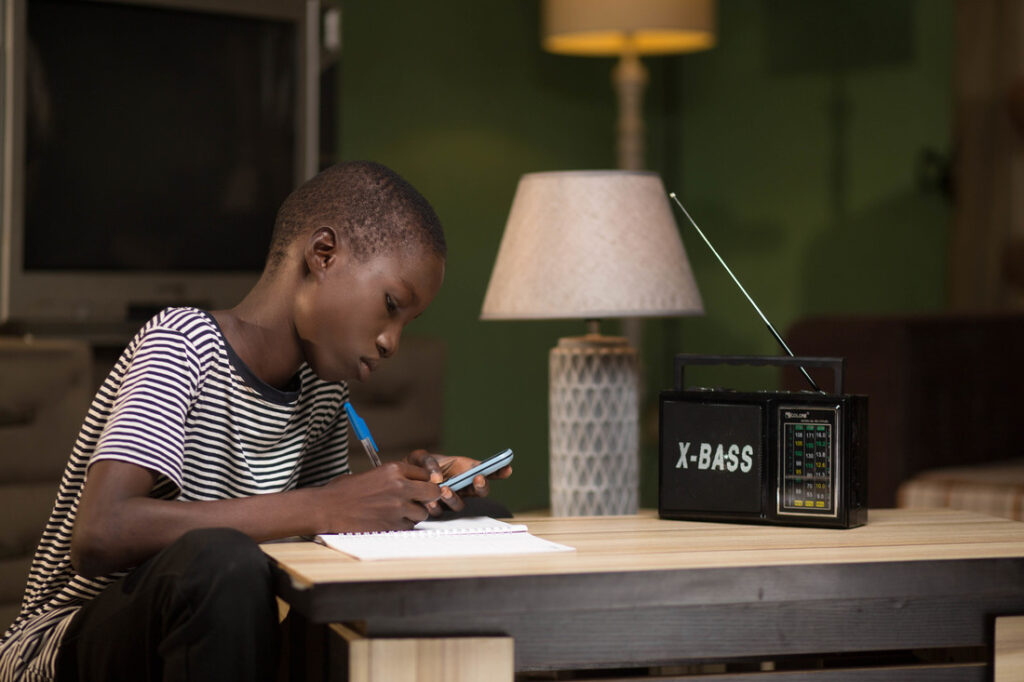Accelerating Digital Literacy to Benefit Education Systems in Africa

Being technologically savvy is essential for navigating today’s increasingly tech-driven global economy.
According to experts in the education and ICT sectors, for young people in Africa to compete with their peers in the global job market, early introduction to digital skills for learners has the potential to give them an advantage as they prepare for the modern workplace.
In 2022, African countries scored between 1.8 and five on the Digital Skills Gap Index. This is below the global average of six. About 87 percent of African business leaders identified digital literacy skills development as a focus area needing further investment.
According to a report by the World Bank, only 50 percent of countries in Africa have ‘computer’ skills as part of their school curriculum, compared to 85 percent of countries globally. The companies surveyed revealed a high demand for digital skills—and a skills shortage. Nearly 65 percent of the job vacancies that employers were trying to fill required at least basic digital skills.
“Digital skills are on the same level as numeracy and literacy skills, and in future, all children will have to be equipped with digital skills,” said Yevgeniya Savchenko, Senior Economist in Education Global Practice for the Eastern and Southern Africa region at the World Bank, and one of the three panelists.
While there are many advantages to digital literacy, there are also numerous and significant challenges in accessing digital tools for teaching, especially in countries with unreliable internet access and lower income levels.
“Achieving digital literacy for the benefit of education systems in Africa requires collaboration. Governments cannot do this alone. From a policy perspective, it must be a collaborative process between governments and all stakeholders in education and technology sectors,” added Eliud Chemweno, eLearning Lead at the Centre for Innovative Teaching and Learning at the Mastercard Foundation.
For educators, digital literacy is critical to help them leverage technology in the best interest of students. They need easy access to appropriate learning tools and adequate training to make the most of the tech solutions available in education. For students, digital literacy helps promote academic growth and allows them to learn how to effectively use digital tools in different areas of their lives.
“Educators often fall short in different skills. Our teaching force [is] not sufficiently digitally literate, and this poses a challenge in introducing technology into classrooms,” said Gabi Immelman, Founder and CEO of Mindjoy, an artificial intelligence-powered platform that helps educators attain the basics of digital skill sets and affords learners digital training on concepts such as coding in South Africa.
The panelists highlighted that creating an enabling environment for digital literacy to thrive is critical. This includes deepening collaboration between governments and private sector players such as EdTech companies, telcos, content providers, teachers, parents, and learners.
To close off, the panel also agreed on the importance of having frameworks that guide implementation – especially where teaching is concerned – to benefit education systems. Tools and apps should also be created with the end user in mind to provide material relevant to the educational ecosystem and the long-term prospects for employment.
The future of Africa’s education systems is measured by how impactful the pedagogy is to its learners. By accelerating digital literacy skills, education systems improve efficiency and the learning experience by equipping learners with lifelong skills.
This edition of the Mastercard Foundation EdTech Mondays sought to discuss the steps that can be taken to accelerate digital literacy to benefit of education systems in Africa.
Watch the full September edition of EdTech Mondays
Learn more about Mastercard Foundation’s work in EdTech here.
Signup for the Mastercard Foundation’s newsletter to stay up to date.
Subscribe to Our Newsletter
To stay up to date with the Mastercard Foundation, sign up for our monthly newsletter. Get youth voices, impact stories and news and announcements all direct to your inbox.
*By signing up for the Mastercard Foundation’s newsletter, you accept our privacy policy.


